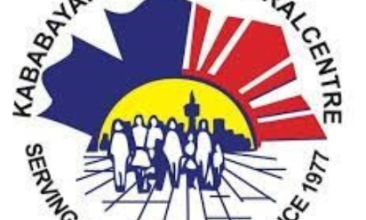Challenges for Refugees and Newcomers
Refugees and newcomers often face a number of challenges within a short period of time. Some of these challenges include, but are not limited to:
- Language and communication barriers
- Impact of disrupted education on schooling and navigating a new educational system
- Access to/knowledge of local services and professional assistance
- Adapting to Canadian winters and obtaining appropriate clothing
- Loss of traditional foods and cooking techniques
- Financial difficulties, unemployment and finding affordable housing
- Distance and limited communication with family and friends
- Physical/mental health issues due to trauma, including survivor guilt and stress
Many people who come to Canada as refugees have experienced war, violence, torture or other kinds of trauma. Some people who experience trauma also have:
- Fear of authority
- Problems trusting other people
- Memory loss
- Depression and anxiety
Get help from Settlement Agencies
Often, newcomers and refugees don't have social networks and rely on settlement agencies to help them cope and build their new lives.
Many settlement agencies can help you find mental health and other services, including:
- providing information about your community
- connecting you with local people who can help with your transition
- providing non-clinical mental health and well-being support
- referring you to community health services
Some organizations offer health and wellness clubs, newcomer walking groups and volunteer opportunities. In addition, they can refer you to a counselling or support group adapted to your needs.
To find help, go to Services Near Me and search for "community health centres" or "crisis lines" in your area.
Mental Health Services
- The Canadian Centre for Victims of Torture (CCVT) is a non-profit organization that can help you integrate into Canadian society. CCVT has doctors, lawyers and social workers who provide legal, medical and social services. CCVT also has English-as-a-Second-Language (ESL) classes, music and art therapy and support groups.
- The Access Alliance Multicultural Health & Community Services offers mental health support by addressing the social determinants of health. This means offering counselling services and ensuring clients have access to primary care, settlement, and community programs.
- IG Vital Health Services offers psychotherapy services that are performed by registered and licensed psychotherapists and psychologists. Their services may be covered by different insurance providers and government programs, including the Interim Federal Health Program (IFHP) for eligible individuals. They are in the Greater Toronto Area (GTA).
- eMentalHealth.ca can help you find mental health support in your area by searching for specific groups, populations, and locations.
- The Canadian Mental Health Association (CMHA) offers many mental health services. You can find a local branch by searching by province or postal code.
- The Community Resources for Immigrant and Refugee Youth is a list of services for immigrant and refugee youth across Canada from the Canadian Paediatric Society.
- Contact the Kids Help Phone, where newcomers aged 5 to 29 can access confidential services from professional counsellors for free, 24/7. Call 1-800-668-6868 (toll-free) or text CONNECT to 686868.
- These Tip Sheets for Caregivers of refugee children contain information about recognizing culture shock, helping children cope with stress and how to welcome children into daycare settings. From Childminding Monitoring, Advisory and Support (CMAS) Canada.
If you are in crisis, you can call or text 9-8-8, connecting you with the national mental health crisis and suicide prevention team. Anyone in crisis who cannot call safely or prefers texting can obtain counselling any time of the day for free.

